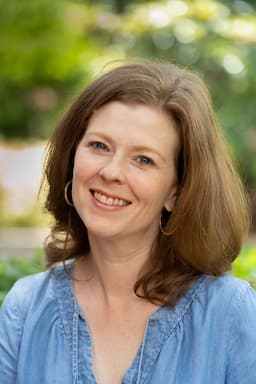20th Sunday in Ordinary Time: Eucharist–Wisdom’s Banquet

Today’s digital age has suddenly made available a massive amount of information at our disposal. Each day we are bombarded with information from texts, images, videos, social media memes, animation, billboards and advertisements. The availability of large amounts of knowledge, however, did not necessarily produced a knowledgeable citizenry. Instead, it allowed many people to cherry-pick information in blogs or news that reinforces their existing beliefs. The information age has instead intensified the proliferation of fake news which at its worst, led to a crisis of truth. Like in the film Matrix, the internet has intensified our non-acceptance of the real, believing instead in the make-believe and fake world that cyberspace has fabricated for us. In this confusing age, we need wisdom to discern the true, good and beautiful from fake ones. Where shall we get true wisdom today?
In the Bible, “wisdom” means practical knowledge that leads to true success, happiness, and fulfillment in life. This knowledge can only come from true religion, godliness and piety: “The fear of the Lord is the beginning of wisdom” (Proverbs 10: 9).
The readings for today’s 20th Sunday in ordinary time, reflect this biblical vision of wisdom. In the First Reading, the book of Proverbs personify sanity and stupidity as two goddesses: Woman Wisdom and Woman Folly which are competing for the Israelites’ loyalty. Each offers the passerby her attractive invitation to come in and enjoy a banquet. The Proverbs say that answering the invitation of Woman Wisdom leads to life while the seduction of Woman Folly gets you locked into a tomb.
“Come, eat of my food, and drink of the wine I have mixed!
Forsake foolishness that you may live.”
According to proverbs, folly is thinking that our life will ever make sense if we fill it with piles of stuff and wisdom is living with the one thing we need the most: closeness to God and closeness through God to everyone and everything else.
In the second reading, Paul in his letter to the Ephesians, urges the Ephesians to live not foolishly but wisely. By living wisely, Paul alludes to the Eucharist as Wisdom’s banquet when he speaks of “addressing one another in psalms and hymns and spiritual songs, singing and playing to the Lord in your hearts, giving thanks always and for everything in the name of our Lord Jesus Christ to God the Father.”
In the Gospel, Jesus showed the people how to live wisely by offering his own life as food and drink.
For my flesh is true food,
and my blood is true drink.
Whoever eats my flesh and drinks my blood
remains in me and I in him.
Just as the living Father sent me
and I have life because of the Father,
so also the one who feeds on me
will have life because of me.
By partaking of Jesus’ body and blood the people will live forever and have eternal life. To live wisely, therefore, is to partake of eternal life which does not refer only to the afterlife but also to our very life on earth. We can participate in God’s eternal life while still living on earth; eternal life is already present and, at the same time, is expected to come in the future.
Unfortunately, Jesus’ wisdom was not understood by his own people because they were locked in their own narrow minded categories and concepts of religion and God. They were not prepared to change their thinking which they have been used to ever since their birth.
In this Sunday’s liturgy, Jesus invites us to open our minds and hearts and allow the true power and wisdom of life to enter into us through the Eucharist. We are even invited to change or expand our very understanding of the Eucharist. The Eucharist is more than just a ritual that we are obligated to attend. The Eucharist is more than just a celebration of the memorial of Jesus’ giving of his life on the cross. The Eucharist is more than just a fellowship of the body of Christ. The Eucharist is a divine time and space which gives us wisdom to change the flawed, deceptive and enslaving mindsets and attitudes of our lives. The Eucharist gives us practical wisdom to live the true, good and beautiful in our everyday life which is threatened by the fake, superficial and make-believe world as an offshoot of the information age.
I am passionate about the intersection between new media and technology. I continue to research and apply new media in theology and vice-versa. I am also a fan of Our Mother of Perpetual Help and her continuing relevance in today's digital world.
View all posts by Baclaran Phenomenon







